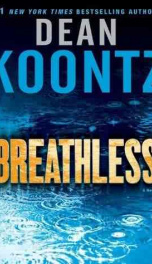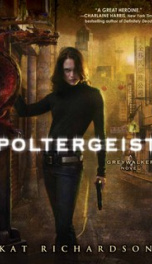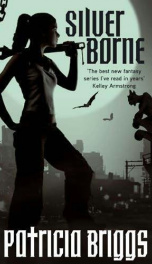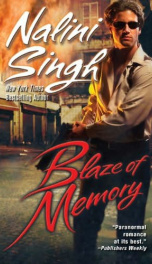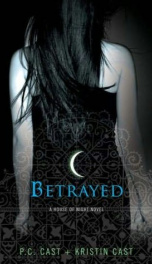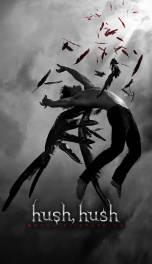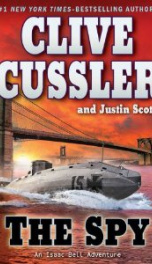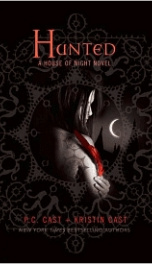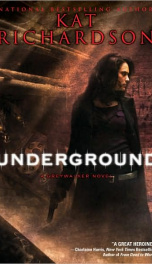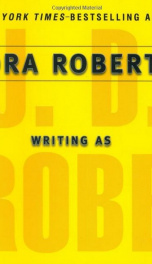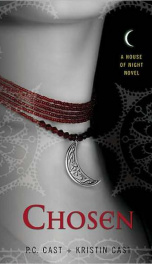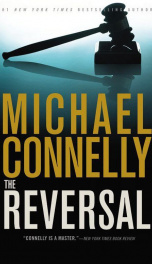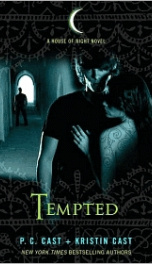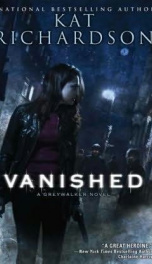Simak Clifford D.

Clifford Donald Simak (August 3, 1904 - April 27, 1988) was an American science fiction writer. He won three Hugo awards and one Nebula award, and was named the third Grand Master by the Science Fiction and Fantasy Writers of America (SFWA) in 1977.[1][2] Clifford Donald Simak was born in Millville, Wisconsin, son of John Lewis and Margaret (Wiseman) Simak. He married Agnes Kuchenberg on April 13, 1929 and they had two children, Scott and Shelley. Simak attended the University of Wisconsin–Madison and later worked at various newspapers in the Midwest. He began a lifelong association with the Minneapolis Star and Tribune (Minneapolis, Minnesota) in 1939, which continued until his retirement in 1976. He became Minneapolis Star 's news editor in 1949 and coordinator of Minneapolis Tribune's Science Reading Series in 1961. He was well liked by many of his science fiction cohorts, especially Isaac Asimov. He died in Minneapolis.[3] Simak became interested in science fiction after reading the works of H. G. Wells as a child. He started writing for science fiction pulp magazines in 1931, but dropped out of the field by 1933. The only science-fiction piece that he published between 1933 and 1937 was The Creator (Marvel Tales #4, March-April 1935), a notable story with religious implications, which was at the time a rarity in the genre of science fiction. Once John W. Campbell began redefining the field in late 1937, Simak returned to science fiction and was a regular contributor to Astounding Stories throughout the Golden Age of Science Fiction (1938–1950). His first publications, such as Cosmic Engineers (1939), were in the traditions of the earlier superscience subgenre perfected by E. E. "Doc" Smith, but he soon developed his own style, which is usually described as gentle and pastoral. A typical Simak alien is much more likely to be seen sitting on a porch in rural Wisconsin drinking beer with the protagonist than invading Earth. During this period, Simak also published a number of war and western stories in pulp magazines. His best known novel may be City, a collection of short stories with a common theme of mankind's eventual exodus from Earth. Simak continued to produce award-nominated novels throughout the 1950s and 1960s. The quality of his longer pieces somewhat declined in the 1970s as his health deteriorated, although his short fiction was well regarded. Aided by a friend, he continued writing and publishing science fiction and, later, fantasy, into his 80s. He believed that science fiction not rooted in scientific fact was responsible for the failure of the genre to be taken seriously, and stated his aim was to make the genre a part of what he called "realistic fiction." Simak's stories often repeat a few basic ideas and themes. First and foremost is a setting in rural Wisconsin. A crusty individualistic backwoodsman character literally comes with the territory, the best example being Hiram Taine, the protagonist of The Big Front Yard. Hiram's dog "Towser" (sometimes "Bowser") is another Simak trademark being common to many of Simak's works. But the rural setting is not always as idyllic as here; and in Ring Around the Sun it is largely dominated by intolerance and isolationism. An idea often found in the stories is the idea that there is no past time for a time traveler to go to. Instead, our world moves along in a stream of time, and to move to a different place in time is to move to another world altogether. Thus in City our Earth is overrun by ants, but the intelligent dogs and the remaining humans escape to other worlds in the time stream. In Ring Around the Sun the persecuted paranormals escape to other Earths which, if they could all be seen at once, would be at different stages of their orbit around the sun, hence the title. In Time is the Simplest Thing a paranormal escapes a mob by moving back in time, only to find that the past is a place where there are no living things and inanimate objects are barely substantial. Time travel also plays an important role in the ingeniously constructed Time and Again, then ventures into metaphysics. A long-lost space traveler returns with a message which is SF-slanted yet religious in tone. He crashed on a planet and was nurtured by ethereal duplicates - spirits? souls? - that seem to accompany every sentient being throughout life. His fuddled observations were seized upon by religious factions, and a schism is threatening to erupt into war on Earth. Intelligence, loyalty and friendship, the existence of God and souls, the unexpected benefits and harm of invention, tools as extensions of humanity, and more questions are often explored by Simak's robots, whom he uses as "surrogate humans"[4]. His robots begin as likable mechanical persons, but morph in surprising ways. Having achieved intelligence, robots move onto common themes such as, "Why are we here?" and "Do robots have souls"? Examples are the faithful butler Jenkins in City, the religious robot Hezekiel in A Choice of Gods, the frontier robots in Special Deliverance and A Heritage of Stars, and the monk-like robots in Project Pope who seek Heaven. Simak's robot-awareness theme goes farthest in All the Traps of Earth. A 600-year-old robot, a family retainer who earned the name Richard Daniel, is considered chattel to be reprogrammed and lose all its memories. The robot runs away, hitches onto a spaceship, and passes through hyperspace unprotected. Daniel gains the ability to see and fix problems in anything - a ship, a robot, a human - telekinetically. Yet he's still drifting and hunted as chattel. Finally he stumbles on a frontier planet and finds a purpose, helping the pioneers as a doctor, a servant, a colonist, and a friend. And here Daniel achieves an epiphany: human beings are more clever than they know. Human-created robots set loose can become agents with para-human abilities that directly or indirectly benefit humanity. Thus do robots, and Mankind, escape "all the traps of earth". The religious theme is often present in Simak's work, but the protagonists who have searched for God in a traditional sense, tend to find something more abstract and inhuman. Hezekiel in A Choice of Gods cannot accept this. Quote: "God must be, forever, a kindly old (human) gentleman with a long, white, flowing beard." Simak's short stories and longer novellas range from the contemplative and thoughtfully idyllic to pure terror, although the punch line is often characteristically understated, as in Good Night Mr. James and Skirmish. There is also a group of humorous stories, of which "The Big Front Yard" is the most successful. And Way Station is in the midst of all of the science fiction paraphernalia a moving psychological study of a very lonely man who has to make peace with his past and finally manages to do so, but not without personal loss. The contemplative nature of the Simak character is a recurring trait both of theme and of the author's style. Many of his aliens have a dry, otherworldly sense of humor, and others are unintentionally amusing, either in their speech or their appearance. So too are his robots full of personality, and even his dogs. By contrast, his "heroes" are ciphers. His protagonists are often boring men, never described and never reappearing. They solve crises by muddling through, and if they fall in love with "the girl" (also never described), it's incidental. One of Simak's editors objected to his stories because his heroes were "losers". Simak replied, "I like losers."[5] One finds other traditional SF themes in Simak's work. The importance of knowledge and compassion in Immigrant and Kindergarten. Identity play, as in Good Night. Mr James (filmed as The Outer Limits: The Duplicate Man in 1964). Fictions come to life in Shadow Show and elsewhere, such as the novel Out of Our Minds. And there is the revolt of the machines in Skirmish. And the rather horrifying meeting with an alien world in Beachhead, AKA You'll Never Go Home Again. (Many of these are in Strangers in the Universe). Finally, Simak throws in many science-fictional fillips that remain unexplained. "Not only is the universe stranger than we imagine, it is stranger than we can imagine," is a phrase misattributed to Arthur Stanley Eddington. Simak's characters encounter alien creatures and concepts they simply cannot understand, and never will. For example, in Special Deliverance, the humans are stalked by The Wailer, which turns out to be a huge wolf-like creature that bells an infinitely-sad howl. They never learn what the creature is, why it seems sad, or how it got there. Simak leaves mysteries hanging in his writing. Simak himself sums up his life's work in the Foreword to Skirmish. After explaining what themes he avoids - no large-scale alien invasions, no space wars, no empire sagas - he states, "Overall, I have written in a quiet manner; there is little violence in my work. My focus has been on people, not on events. More often than not I have struck a hopeful note... I have, on occasions, tried to speak out for decency and compassion, for understanding, not only in the human, but in the cosmic sense. I have tried at times to place humans in perspective against the vastness of universal time and space. I have been concerned where we, as a race, may be going, and what may be our purpose in the universal scheme - if we have a purpose. In general, I believe we do, and perhaps an important one." First publication in chronological order. Early on Simak wrote some war and Western pulp stories not included here.
do you like this author?
What readers are saying
What do you think? Write your own comment on this book!
write a commentWhat readers are saying
What do you think? Write your own comment on this author!
write a commentBook list
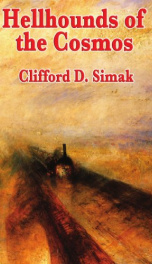
Hellhounds of the Cosmos
Series:
Unknown
Year:
Unknown
Raiting:
4/5
"The paper had gone to press, graphically describing the latest of the many horrible events which had been enacted upon the Earth in the last six months. The headlines screamed that Six Corners, a little hamlet in Pennsylvania, had been wiped out by the Horror. Another front-page story told of a Terror in the Amazon Valley which had sent the natives down the river in babbling fear. Other stories told of deaths here and there, all attributable to the "Black Horror," as it was called."
Show more
add to favoritesadd In favorites

Empire
Series:
Unknown
Year:
Unknown
Raiting:
3.5/5
excerpt from CHAPTER ONE: Spencer Chambers frowned at the space gram on the desk before him. John Moore Mallory. That was the man who had caused so much trouble in the Jovian elections. The trouble maker who had shouted for an investigation of Interplanetary Power. The man who had said that Spencer Chambers and Interplanetary Power were waging economic war against the people of the Solar System. Chambers smiled. With long, well-kept fingers, he rubbed his iron-gray mustache. John Moore Mallory was right; for that reason, he was a dangerous man. Prison was the place for him, but probably a prison outside the Jovian confederacy. Perhaps one of the prison ships that plied to the edge of the System, clear to the orbit of Pluto. Or would the prison on Mercury be better? Spencer Chambers leaned back in his chair and matched his fingertips, staring at them, frowning again. Mercury was a hard place. A man's life wasn't worth much there. Working in the power plants, where the Sun poured out its flaming blast of heat, and radiations sucked the energy from one's body, in six months, a year at most, any man was finished. Chambers shook his head. Not Mercury. He had nothing against Mallory. He had never met the man but he rather liked him. Mallory was just a man fighting for a principle, the same as Chambers was doing. He was sorry that it had been necessary to put Mallory in prison. If the man only had listened to reason, had accepted the proposals that had been made, or just had dropped out of sight until the Jovian elections were over... or at least had moderated his charges. But when he had attempted to reveal the offers, which he termed bribery, something had to be done. Ludwig Stutsman had handled that part of it. Brilliant fellow, this Stutsman, but as mean a human as ever walked on two legs. A man utterly without mercy, entirely without principle. A man who would stoop to any depth. But a useful man, a good one to have around to do the dirty work. And dirty work sometimes was necessary. Chambers picked up the spacegram again and studied it. Stutsman, out on Callisto now, had sent it. He was doing a good job out there. The Jovian confederacy, less than one Earth year under Interplanetary domination, was still half rebellious, still angry at being forced to turn over its government to the hand-picked officials of Chambers' company. An iron heel was needed and Stutsman was that iron heel. SO the people on the Jovian satellites wanted the release of John Moore Mallory. "They're getting ugly," the spacegram said. It had been a mistake to confine Mallory to Callisto. Stutsman should have thought of that. Chambers would instruct Stutsman to remove Mallory from the Callisto prison, place him on one of the prison ships. Give instructions to the captain to make things comfortable for him. When this furor had blown over, after things had quieted down in the Jovian confederacy, it might be possible to release Mallory. After all, the man wasn't really guilty of any crime. It was a shame that he should be imprisoned when racketeering rats like Scorio went scot-free right here in New York. A buzzer purred softly and Chambers reached out to press a stud. "Dr. Craven to see you," his secretary said. "You asked to see him. Mr. Chambers." "All right," said Chambers. "Send him right in." He clicked the stud again, picked up his pen, wrote out a spacegram to Stutsman, and signed it. Dr. Herbert Craven stood just inside the door, his black suit wrinkled and untidy, his sparse sandy hair standing on end. "You sent for me," he said sourly. "Sit down, Doctor," invited Chambers. --This text refers to the Kindle Edition edition.
Show more
add to favoritesadd In favorites
Book list

Hellhounds of the Cosmos
Series:
Unknown
Year:
Unknown
Raiting:
4/5
"The paper had gone to press, graphically describing the latest of the many horrible events which had been enacted upon the Earth in the last six months. The headlines screamed that Six Corners, a little hamlet in Pennsylvania, had been wiped out by the Horror. Another front-page story told of a Terror in the Amazon Valley which had sent the natives down the river in babbling fear. Other stories told of deaths here and there, all attributable to the "Black Horror," as it was called."
Show more
add to favoritesadd In favorites

Empire
Series:
Unknown
Year:
Unknown
Raiting:
3.5/5
excerpt from CHAPTER ONE: Spencer Chambers frowned at the space gram on the desk before him. John Moore Mallory. That was the man who had caused so much trouble in the Jovian elections. The trouble maker who had shouted for an investigation of Interplanetary Power. The man who had said that Spencer Chambers and Interplanetary Power were waging economic war against the people of the Solar System. Chambers smiled. With long, well-kept fingers, he rubbed his iron-gray mustache. John Moore Mallory was right; for that reason, he was a dangerous man. Prison was the place for him, but probably a prison outside the Jovian confederacy. Perhaps one of the prison ships that plied to the edge of the System, clear to the orbit of Pluto. Or would the prison on Mercury be better? Spencer Chambers leaned back in his chair and matched his fingertips, staring at them, frowning again. Mercury was a hard place. A man's life wasn't worth much there. Working in the power plants, where the Sun poured out its flaming blast of heat, and radiations sucked the energy from one's body, in six months, a year at most, any man was finished. Chambers shook his head. Not Mercury. He had nothing against Mallory. He had never met the man but he rather liked him. Mallory was just a man fighting for a principle, the same as Chambers was doing. He was sorry that it had been necessary to put Mallory in prison. If the man only had listened to reason, had accepted the proposals that had been made, or just had dropped out of sight until the Jovian elections were over... or at least had moderated his charges. But when he had attempted to reveal the offers, which he termed bribery, something had to be done. Ludwig Stutsman had handled that part of it. Brilliant fellow, this Stutsman, but as mean a human as ever walked on two legs. A man utterly without mercy, entirely without principle. A man who would stoop to any depth. But a useful man, a good one to have around to do the dirty work. And dirty work sometimes was necessary. Chambers picked up the spacegram again and studied it. Stutsman, out on Callisto now, had sent it. He was doing a good job out there. The Jovian confederacy, less than one Earth year under Interplanetary domination, was still half rebellious, still angry at being forced to turn over its government to the hand-picked officials of Chambers' company. An iron heel was needed and Stutsman was that iron heel. SO the people on the Jovian satellites wanted the release of John Moore Mallory. "They're getting ugly," the spacegram said. It had been a mistake to confine Mallory to Callisto. Stutsman should have thought of that. Chambers would instruct Stutsman to remove Mallory from the Callisto prison, place him on one of the prison ships. Give instructions to the captain to make things comfortable for him. When this furor had blown over, after things had quieted down in the Jovian confederacy, it might be possible to release Mallory. After all, the man wasn't really guilty of any crime. It was a shame that he should be imprisoned when racketeering rats like Scorio went scot-free right here in New York. A buzzer purred softly and Chambers reached out to press a stud. "Dr. Craven to see you," his secretary said. "You asked to see him. Mr. Chambers." "All right," said Chambers. "Send him right in." He clicked the stud again, picked up his pen, wrote out a spacegram to Stutsman, and signed it. Dr. Herbert Craven stood just inside the door, his black suit wrinkled and untidy, his sparse sandy hair standing on end. "You sent for me," he said sourly. "Sit down, Doctor," invited Chambers. --This text refers to the Kindle Edition edition.
Show more
add to favoritesadd In favorites
What readers are saying
What do you think? Write your own comment on this author!
write a commentif you like Simak Clifford D. try:
readers also enjoyed
What readers are saying
What do you think? Write your own comment on this author!
write a commentGenre
if you like Simak Clifford D. try:
readers also enjoyed
Do you want to exchange books? It’s EASY!
Get registered and find other users who want to give their favourite books to good hands!


